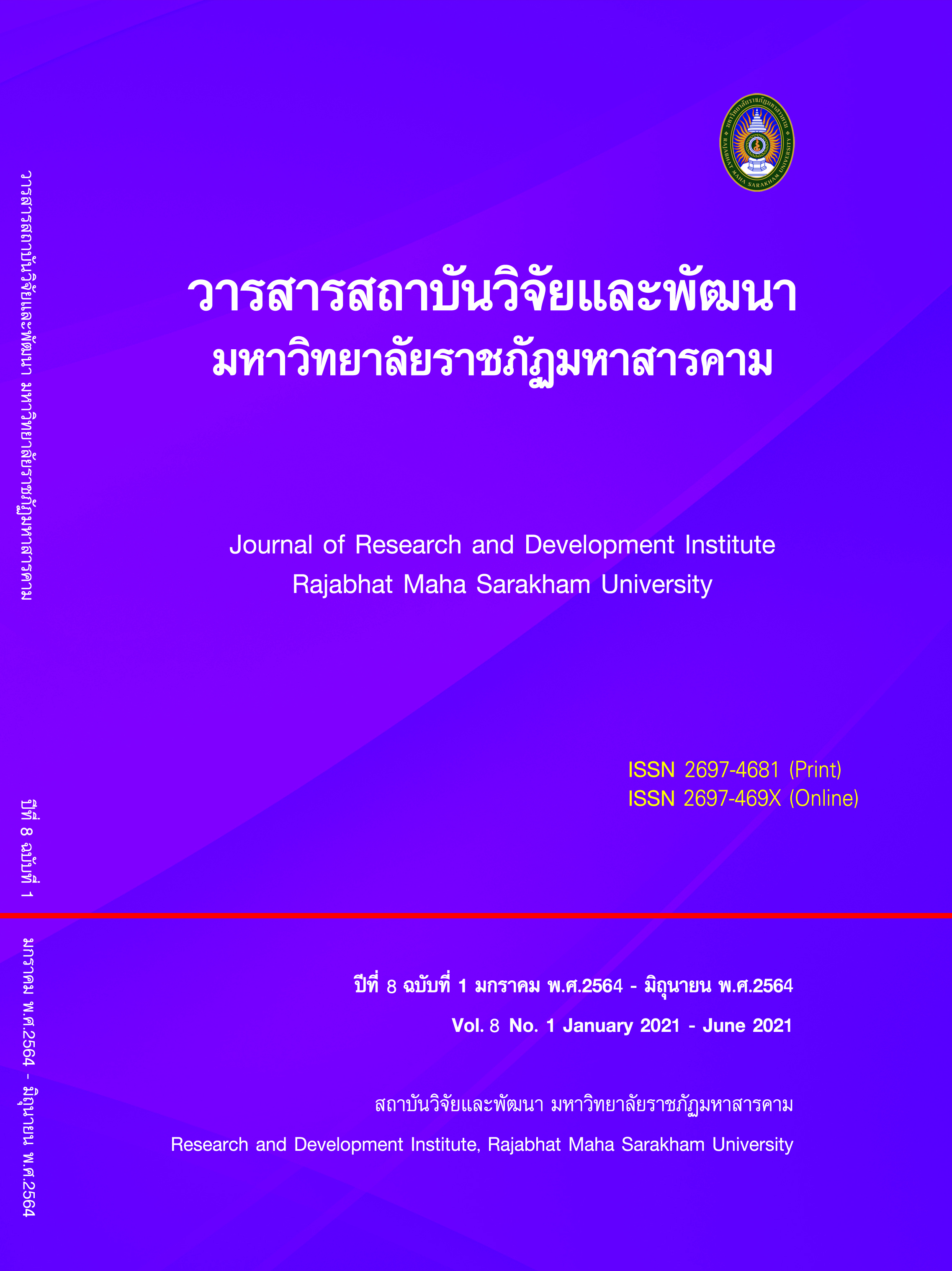Approach Development for Transformational leadership of school administrators under the Local Government Administration of Kalasin Organization
Keywords:
Transformational leadership, School administratorsAbstract
The purposes of this research were to 1) study the level of transformational leadership of school 2) study the approach development for transformational leadership of school administrators. The research procedures were divided into two phrases. The first stage was to study and synthesize the theory and literature revision. The 234 samples were involved with this. The research instrument was a questionnaire and the statistics used for data analysis were mean, percentage, standard deviation and t-test independent. The second stage was to study the approach development for transformational leadership of school administrators Organization from 9 experts by using the formal interview and using content analysis.
The results found that:
1) The transformational leadership of school administrators under the Local Government Administration of Kalasin Organization in overall was high by raking from maximum to minimum average following (1) the inspiring (2) intellectual stimulation (3) individual and prestige, respectively.
2) The results of studying the approach development for transformational leadership of school administrators under the Local Government Administration of Kalasin Organization were, as follow; 2.1) the good model of school administrators will bring the reliability and the confidence to the team, and being professional and understand the role of school administrators 2.2) inspiring to enhance the team to reach the goal, 2.3) supporting and promoting the team to realize the problems and the creative ways to solve the problems and 2.4) understanding and accepting the individual differences and support the staff to develop the skills and knowledge.
References
Ajinsamajarn, C. (2005). Organizational Leadership. Bangkok: intellectuals.
Bass, B. M. (1998). Transformational leadership: Industrial, military, and educational impact. Lawrence Erlbaum Associates Publishers.
Bass, B. M., & Avolio, B. J. (Eds.). (1994). Improving organizational effectiveness through transformational leadership. Sage Publications, Inc.
Chongwisan, R. (2013). Transformational -Leadership. Journal of People Management, 23 (2), 98-102.
Jadaman, P. (2017). Leaders in the 21st Century: Thailand 4.0. [Online].
https://www.Kroobannok.com. [1 May 2020]
Khejaranan, N. (2002). Effective team building. Bangkok: Expernet.
Krejcie, R. V. & Morgan, D. W. (1970). Determining Sample Size for Research Activities. Educational and Psychological Measurement.
Phanphae, P. (2011). Leadership and change management. Bangkok: Chulalongkorn University.
Pongsriwat, S. (2007). leadership. Bangkok: S. Asia Press.
Pongsriwat, S. (2015). leadership. Bangkok: S. Asia Press.
Runcharoen, T. (2010). Professionalism in organizing and administering education in the Education Reform Era (Revised Edition) for the second round of reform and the third round of external assessment. Bangkok: Khao Fang.
Sararatana, W. (2014). Leadership: Current Contemporary Theories. Bangkok: Dhipayawisut.
Srisa-ard, B. (2013). Statistical Methods for Research. Bangkok: Suwiriyasan.
Yang, Yingxiu. (2014). Principals’ Transformational Leadership in School Improvement. International Journal of Educational Management, 28(3).
Downloads
Published
How to Cite
Issue
Section
License
Copyright (c) 2021 Journal of Research and Development Institute Rajabhat Maha Sarakham University

This work is licensed under a Creative Commons Attribution-NonCommercial-NoDerivatives 4.0 International License.
Articles that are published are copyrighted by the authors of the articles







